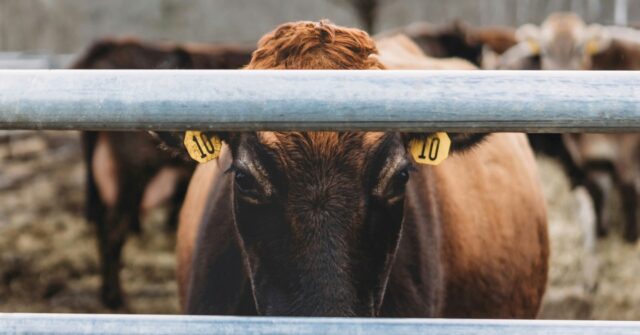Boycotts against the use of Bovaer, a feed additive designed to reduce methane emissions from cattle, have emerged in Britain amidst growing safety concerns. Proponents of Bovaer, which is marketed as a solution to environmental issues posed by bovine methane emissions, have labeled these concerns as “misinformation.” The campaign has gained traction particularly through social media, where prominent figures, including Rupert Lowe, a Member of Parliament and supporter of British agriculture, have publicly voiced their opposition to products derived from animals fed Bovaer.
The ongoing boycott is particularly significant as Danish-Swedish dairy conglomerate Arla Foods has commenced trials of the additive across thirty farms in the UK. This initiative aims to supply dairy products to major supermarket chains, such as Aldi, Tesco, and Morrisons. Bovaer was developed by DSM-Firmenich and contains key components like propylene glycol, silicon dioxide, and 3-nitrooxypropanol, also known as 3-NOP. The additive has gained attention due to environmental groups’ increasing emphasis on methane emissions and their impacts on climate change.
Safety concerns surrounding Bovaer have been amplified online, with some consumers expressing fears over the potential health risks associated with consuming livestock products from animals treated with the additive. Specific studies on rats have sparked debates over possible links to cancer, alongside warnings from the U.S. Food and Drug Administration about risks to male fertility caused by the handling of 3-NOP. Despite these claims, supporters insist that the compound is completely broken down in cows’ digestive systems before it can potentially affect milk or meat products, a position backed by regulatory bodies in the U.S., UK, and EU.
The backlash against Bovaer has reached significant momentum on social media, with many consumers demonstrating their disapproval by discarding dairy products suspected of being linked to the additive. This has prompted some producers to market their products explicitly as Bovaer-free. Alongside this, political figures like Rupert Lowe have intensified calls for regulatory reviews regarding Bovaer’s usage within the food system, emphasizing the uncertainty that surrounds consumer safety in this evolving situation.
In light of the widespread controversy, media outlets have engaged in efforts to dispel what they describe as misinformation related to Bovaer and its safety. For instance, a fact-checking service from the BBC highlighted that fears about male fertility are related to handling the pure compound, not the processed forms used in livestock feed. They further clarified that influential figures like Bill Gates are not involved in the development or production of Bovaer, despite his investments in similar technology through other companies.
The situation illustrates a growing rift between proponents of agricultural innovation, seeking solutions for climate change, and concerned consumers wary of potential health implications. As the debate continues, the decision by both consumers and producers to distance themselves from Bovaer will likely have lasting implications for the agricultural industry in Britain and potentially set a precedent for similar cases in the future. The ongoing discourse reflects broader societal anxieties about food safety and environmental sustainability, underscoring the necessity for transparent communication and thorough research in the development of agricultural practices and products.

